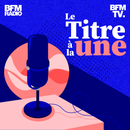Digital curfew, black and white apps: Gabriel Attal's proposals to combat young people's screen addiction

Ban on social networks for those under 15, digital curfew, one-hour-per-day limit for minors... In an article entitled "To save our youth, let's tackle screens" published this Tuesday in Le Figaro , Gabriel Attal, MP for Hauts-de-Seine and secretary general of the Renaissance party, and child psychiatrist Marcel Rufo put forward shocking proposals to combat screen addiction among young people.
"A state of emergency must be declared against screens," they write.

Among the measures they advocate: a ban on social media for children under the age of 15. "Just as we imposed age verification for pornographic sites, we must do the same for social media," they argue. And for minors, they call for a "radical but absolutely essential" measure: limiting access to social media to one hour per day.
Gabriel Attal and Marcel Rufo also recommend the implementation of a "systematic" digital curfew for young people between the ages of 15 and 18. This curfew would apply from 10 p.m. to 8 a.m. "without exception." The goal: "to detoxify our young people," they claim.
Because the harmful effects of screens are numerous, from their impact on children's mental health and development to their educational performance and bullying. They point out that adolescents spend between three and a half and five hours a day in front of a screen, "and soon more time in front of their screens than at school."
More than a third of young people are sleeping less because they spend time in front of a screen, according to an INSEE study published last year. And some 11% of 15- to 19-year-olds feel depressed after using screens.
Another solution being considered: switching to black and white for at least one hour after thirty minutes of social media use. This initiative would make social media less attractive—"color images trigger the release of dopamine and create addiction, while black and white images help prevent this," they explain.
Gabriel Attal and Marcel Rufo also suggest creating an "addict score" based on the same principle as the Nutri-score, the labeling found on many foods ranging from A to E according to their nutritional qualities. It would be affixed to each tool and service to measure their dangerousness and addictive risk.
In addition, the two men are calling for the creation of a screening campaign for all sixth- and tenth-grade students to measure their level of addiction. The goal would be for each family to assess their child's personal situation, but also to assess the situation at the national level.
This screening campaign could be carried out as part of medical visits, via community doctors or school nurses. The health insurance agency explains that the campaign could be inspired by the M'T dents program, which offers preventative dental appointments and care every year to children and young people aged 3 to 24.
Furthermore, Gabriel Attal and Marcel Rufo believe that "addiction must have a cost for the platforms." "Tobacco and alcohol are overtaxed, but we don't ask anything of digital platforms." They propose to collect 2% of their revenue generated in France to finance a fund dedicated to research and treatment of young people's mental health.
If these platforms persist in "refusing to cooperate with us," "we may have to go even further," he said, suggesting a ban. Albania recently blocked TikTok for a year after a 14-year-old student died in a fight near a school linked to a social media conflict.
"The stakes are high," they conclude. "It's about saving the mental health of our youth. It's about protecting democracy, which is threatened by algorithmic bubbles and the incentive for the most extreme statements."
"If we do nothing, screens and their content will slowly kill our youth and, ultimately, our entire society."
BFM TV





